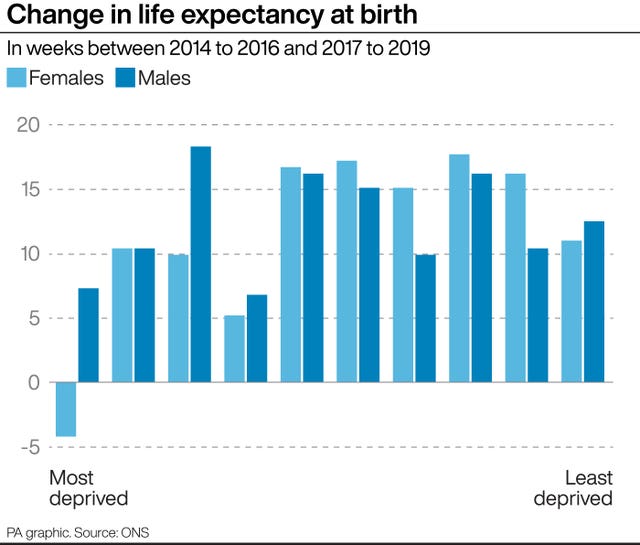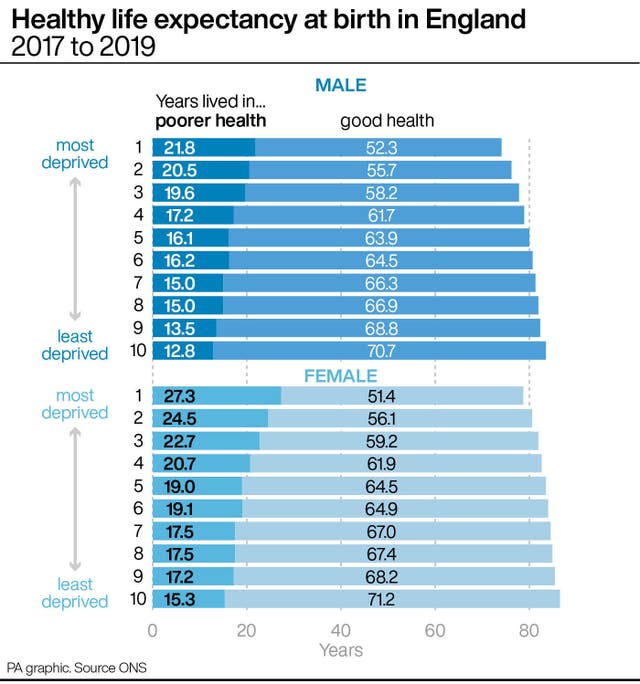People living in the most deprived areas of England face a gap of almost two decades of life in good general health compared with those in the least deprived areas, new figures show.
Office for National Statistics (ONS) data published on Monday shows healthy life expectancy at birth among men living in the most deprived areas was 52.3 years in 2017 to 2019, compared with 70.7 years among those living in the least deprived areas.
This amounts to a difference of 18.4 years in “good” general health between these populations across their life course.
Women in the most deprived areas could expect to live 51.4 years in “good” health compared with 71.2 years in the least deprived areas – a difference of 19.8 years in “good” general health.
Healthy life expectancy is an estimate of lifetime spent in “very good” or “good” health, based on how individuals perceive their general health, the ONS said.

In Wales, healthy life expectancy at birth for females living in the most deprived areas was 50.2 years compared with 68.4 years in the least deprived areas – a difference of 18.2 years.
For males there was a 16.8-year gap from 51.8 in the most deprived areas to 68.6 years in the least.
Better off people add a decade to life expectancy
The figures also showed that those living in the most deprived areas in England could expect to live 74.1 years compared with 83.5 years in the least deprived areas – almost a decade less.
Women living in the most deprived areas could expect to live 78.7 years, the ONS said, whereas females in the least deprived areas could expect to live 86.4 years – a difference of almost eight years.
But the ONS said there were “significant improvements” in male and female life expectancy at birth in England in 2017 to 2019 compared with 2014 to 2016.
Among women living in the least deprived areas there was a “statistically significant” improvement in life expectancy of 11 weeks while there was an improvement of 12.5 weeks for men in the least deprived areas.

There were significant improvements in male and female life expectancy at birth compared with 2014 to 2016 in most deciles. The exception was the most deprived decile (decile 1) and decile 4, which showed no significant change, the ONS said.
The largest improvements were 18.3 weeks for males in decile 3 and 17.7 weeks for females in decile 8.
Women in the most deprived areas saw their life expectancy fall by 4.2 weeks in 2017 to 2019 compared with 2014 to 2016, but the ONS said this was not “statistically significant”.
In Wales, life expectancy at birth among males living in the most deprived areas was 73.3 years compared with 82.3 years in the least deprived areas – a difference of nine years in length of life.
There was a seven-and-a-half year difference for women in Wales, with life expectancy for females in the most deprived areas at 78.2 years compared with 85.7 years in the least deprived areas.
Article via PA News
















